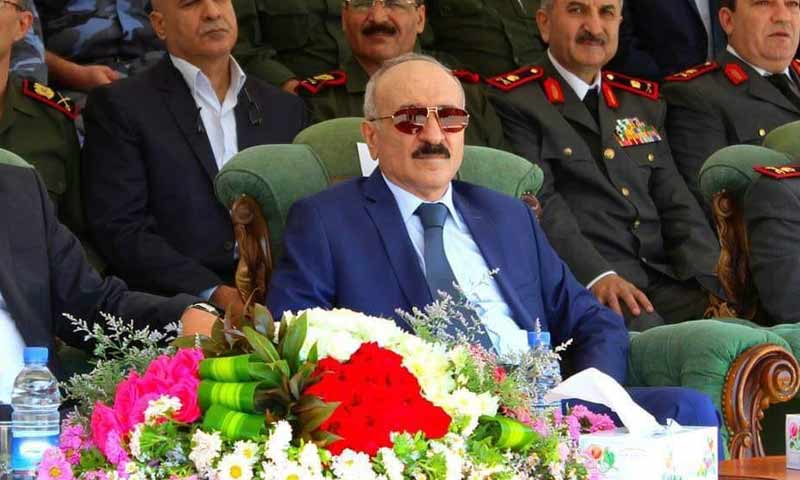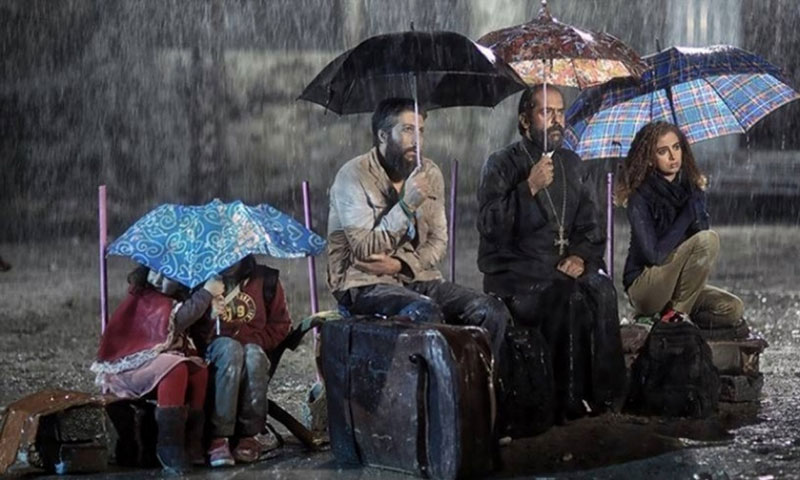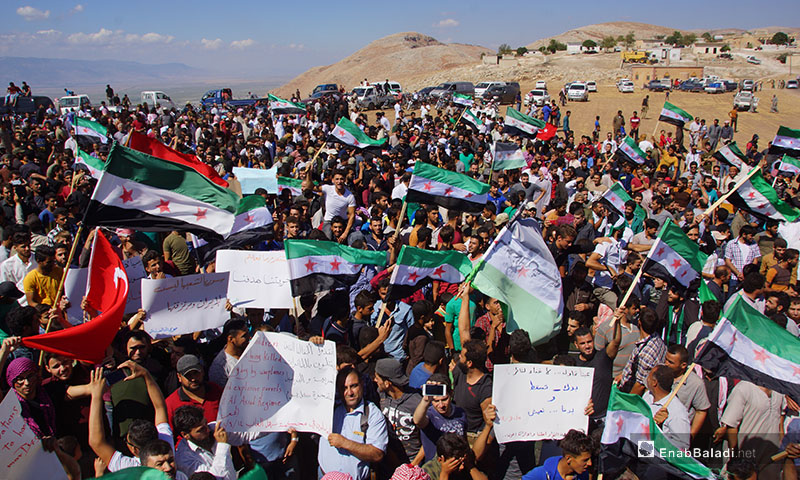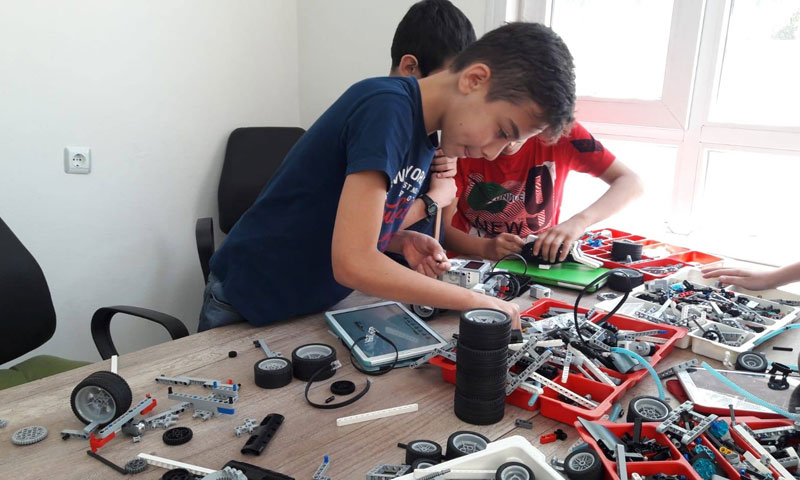Idlib’s Groundwater: Concerns about Depletion
Enab Baladi
In the last six months, people in Idlib countryside started looking for ground-water as an alternative resource for drinking water. However, they started looking for it after the regime prevented the areas that are under the control of the free army, from water and attacked the main fountains there. These factors lead the population to discover the areas in which water is available and they started sinking in the arable lands and pulling the water out. Moreover, the main features of these wells were the big numbers and randomness. However, these features might cause exhaustion of groundwater in the area and a shortage of water in the future. It might also cause desertification and might affect welfare. Enab Baladi visited the eastern countryside of Mara Numan and asked the population about these phenomena.
Abo Ahmad, the owner of one well that he used in farming, said: “I sink the well after the regime prevents us from water. Now, I use the water-ground to water the vegetables which have become my only living these days”. Feras, who sells water in tanks, said that he sank a well because the government prevented them from water and that he made it his living. Every day, he transports water tanks to the houses and charges 650 Syrian pounds for every tank.
Ahmad Al-ahmad considered his sinking for well as a kind of mutiny on the regime’s severe laws. Ahmad said: “In the past, the regime prevented drilling for water and punished people who did that. Now, I feel that I am practicing a kind of freedom that we were deprived of for years”. Alaa, an agriculture engineer, spoke about the dangers of randomness in sinking wells in this area of Idlib province. He said: “The big number of wells and its huge spreading is not good because it will have negative effects on the groundwater and on the environment treasures in general”. While Alaa agreed that it was the population’s right to have special water resources, he said: “It is necessary to put mechanics that prevent random sinking for wells”, he added, “people should have permission for sinking and those who do not have should be punished”. Mohammad, a teacher of science and geology, agreed with Alla’s opinion in putting an end to this phenomenon. He said that permission should be given for the diggers and those who had the machines.
Enab Baladi gave these suggestions to Mr. Hassan, the chief of one local council in Idlib Countryside. Mr. Hassan agreed that the local council did not deal with this phenomenon in spite of its spreading. They never gave any permission nor punished those who were looking for water. The reason for this was, Mr. Ahmad said, that the regime prevented them from water and the unavailability of the alternative. He considered the idea of giving permission to be excluded now and that: “the local councils in the liberated areas have priorities that are more important such as providing medicine and aid and taking care of displaced people” he added, “now, we are looking for alternative solutions regarding schools”.
It is important to refer to the experience of one of Mara Numan Councils. It presented a study for a project for sinking a common well with a depth of about 1000 meters and putting pumps to provide water that can be used in irrigation. The aim of the project was putting a limit on the phenomenon of pulling groundwater randomly. The Council got the finance from British Arc Organization via a local link.
Mr. Hassan explained that this method would succeed in reducing the number of wells and would force the people to go back to the local council. The main obstacle that prevented these ideas from being done in other areas was the lack of money for development projects in the liberated areas. However, most support went for military and aid work.
if you think the article contain wrong information or you have additional details Send Correction
-
Follow us :

















 A
A
A
A
A
A






 More Translated Articles
More Translated Articles